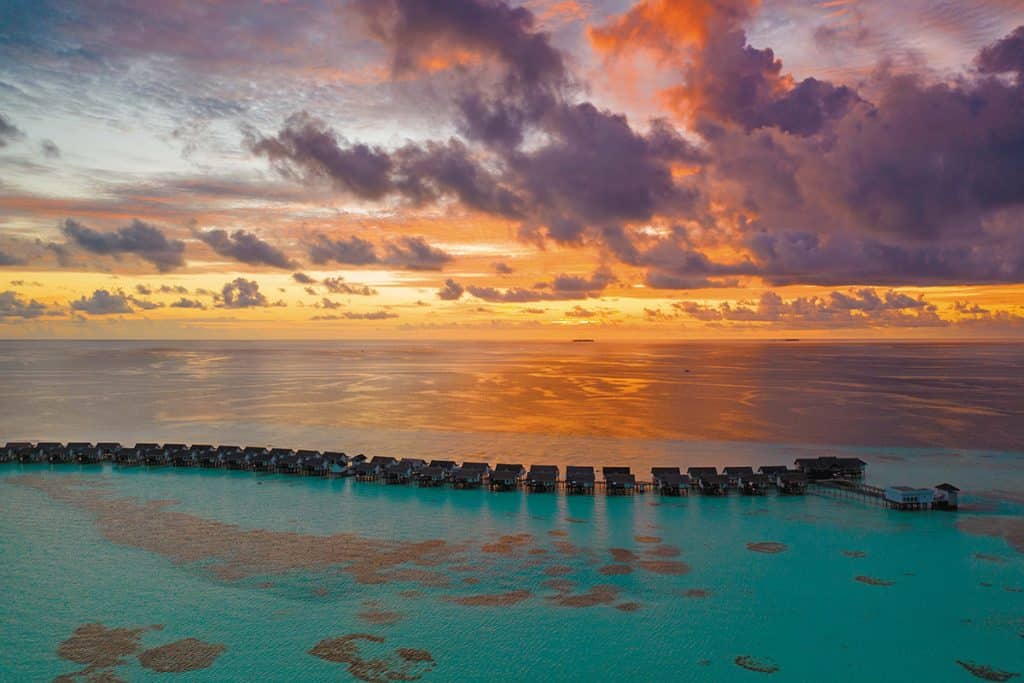Luxury resorts in the Maldives are experiencing an unprecedented boom in Gulf tourism, with some properties reporting a 60 percent surge in bookings from the region compared to last year.
This influx of wealthy individuals is driving a transformation in the island nation’s ultra-luxury hospitality sector, as resorts scramble to meet the demands of their increasingly discerning Gulf clientele.
The Residences, a high-end resort group, has reported a dramatic 60 percent increase in bookings from Gulf countries compared to 2023, according to Jing Hui Leon, Director of Sales for Asia Pacific. This growth is not isolated; other luxury properties are seeing similar trends.
Stéphane Laguette, Chief Commercial Officer at Atmosphere Core, which operates THE OZEN COLLECTION, noted that “a significant percentage of our total revenue comes from the Kingdom of Saudi Arabia and the United Arab Emirates.”
The proximity to Dubai, just a four-hour flight away, has made the Maldives an attractive option for frequent luxury getaways.
The influx of Gulf tourists is reshaping travel patterns in the Maldives. TJ Joulak, General Manager at the Waldorf Astoria Maldives Ithaafushi, observed that Gulf tourists are “opting for long stays and often extending their vacations to a week or more.”
This trend varies among resorts, with some seeing an increase in four-night stays instead of the typical three-night visit.
Maldives resorts tailor luxury experiences for wealthy Gulf tourists
Within the Middle East, THE OZEN COLLECTION’s top three source markets are Saudi Arabia, the UAE and Kuwait for both its resorts, Laguette revealed. However, “macro-environmental geopolitical issues” arising from key source markets for the destination have caused shifts within seasons over the last two years, “mainly from different countries within Asia and Europe, which is a large portion of the inbound contribution to the destination,” he added.

To cater to this lucrative market, resorts are introducing a range of offerings to maintain this influx of Gulf tourists.
Some of these offerings include personal concierge services, expansive highly exclusive villas, all-inclusive holiday packages, cultural adaptations, and a focus on wellness.
The customised experiences have fueled a growing demand for year-round bookings which have effectively reduced the impact of traditional seasonal variations. Historically, the peak tourist season in the Maldives has typically run from December to March. However, this trend of year-round appeal is expected to persist as resorts compete for travellers from the region, further blurring the lines between high and low seasons.
Despite the focus on luxury, sustainability remains a priority for many resorts. THE OZEN COLLECTION has implemented solar energy systems across its properties, resulting in significant reductions in diesel use and CO2 emissions. As of May 2024, they reported 8,890 solar panels installed across seven resorts, producing 16,500 MWh of clean energy.
Market growth and future outlook
The Maldives’ tourism industry is showing robust growth overall. According to Laguette, the destination saw growth rates of 11-12 percent from 2022 to 2023, with 9 percent growth so far in 2024.

This year, the Maldives has already welcomed over 1 million visitors, with 38,646 tourists from the Middle East.
As Gulf tourists continue to drive demand for ultra-luxury experiences, the Maldives’ position as a premier destination appears stronger than ever but the challenge now lies in balancing the demand for luxury experiences with the preservation of the pristine environment that makes the Maldives such a sought-after destination.










